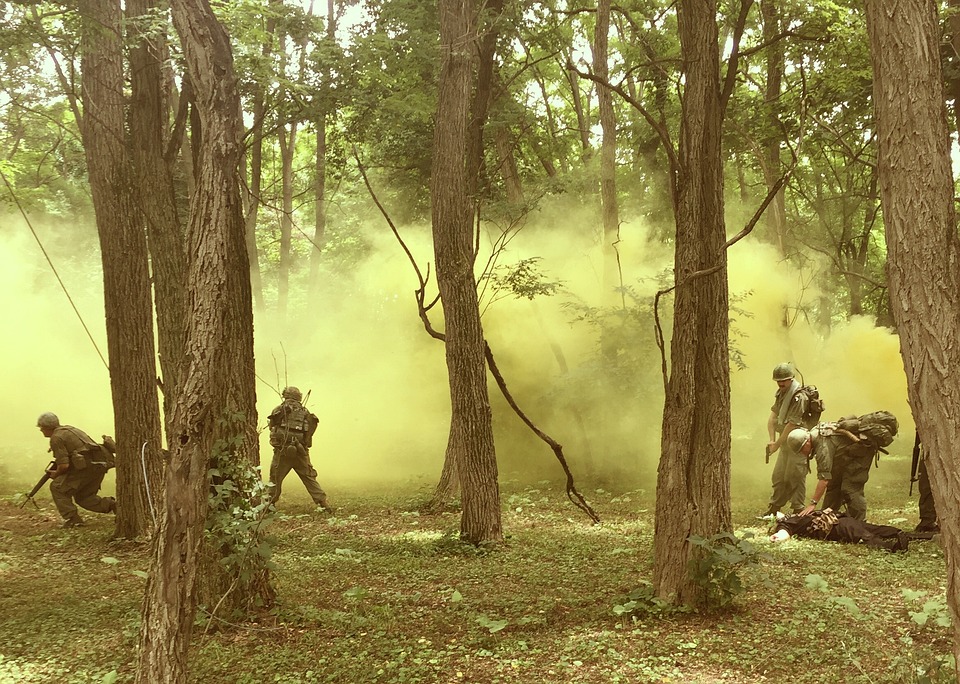The Psychology of Combat: Examining the Mental and Emotional Effects of War
War is a brutal and unforgiving environment that can have profound mental and emotional effects on those who participate in it. From soldiers on the frontlines to civilians caught in the crossfire, the psychological impact of war is far-reaching and complex. In this article, we will explore some of the key psychological aspects of combat and examine how individuals are affected by the trauma of war.
The Effects of Combat on the Brain
Combat is a highly stressful and traumatic experience that can have a lasting impact on the brain. The constant threat of death or injury, the intense sensory overload, and the need to make split-second life or death decisions can all contribute to the development of post-traumatic stress disorder (PTSD) in those who have experienced combat.
Studies have shown that combat veterans with PTSD have altered brain function in areas related to memory, emotion regulation, and arousal. These changes can lead to symptoms such as intrusive memories, flashbacks, hyperarousal, and hypervigilance, which can greatly impair a person’s ability to function in everyday life.
The Psychological Toll of Killing
One of the most difficult aspects of combat is the act of killing another human being. While soldiers are trained to see the enemy as a threat to be eliminated, the act of taking another person’s life can have profound psychological consequences. Many soldiers experience guilt, shame, and moral injury as a result of their actions in combat.
Studies have shown that killing in combat can lead to a range of psychological issues, including PTSD, depression, and substance abuse. Soldiers who have killed in combat may struggle with feelings of remorse, anger, and self-blame, as well as difficulty forming meaningful relationships and connecting with others.
The Impact of Trauma on Mental Health
Trauma is a common experience for those who have been exposed to combat, and its effects on mental health can be lasting and severe. The constant threat of harm, the loss of comrades, and the need to make life or death decisions can all contribute to the development of mental health issues such as PTSD, depression, and anxiety.
Studies have shown that combat veterans are at a higher risk of developing mental health disorders than the general population, with rates of PTSD and depression being particularly high. These disorders can have a significant impact on a person’s quality of life, affecting their ability to work, maintain relationships, and engage in everyday activities.
Coping Mechanisms and Resilience
While the effects of combat on mental health can be devastating, many individuals are able to develop coping mechanisms and resilience that help them navigate the challenges of war. Some soldiers find solace in religious faith, while others turn to therapy, support groups, or medication to manage their symptoms.
Research has shown that social support is a key factor in promoting resilience in combat veterans, as having a strong network of friends, family, and comrades can help individuals process their trauma and develop healthy coping strategies. Engaging in physical activity, relaxation techniques, and mindfulness practices can also help combat veterans manage their symptoms and improve their mental well-being.
Seeking Help and Support
It is essential for those who have been exposed to combat to seek help and support for their mental health issues. Many veterans are hesitant to seek treatment due to stigma, shame, or a fear of being perceived as weak, but therapy, medication, and support groups can be highly effective in managing symptoms and improving quality of life.
If you or someone you know is struggling with the psychological effects of combat, it is important to reach out for help. Organizations such as the Department of Veterans Affairs, the Veterans Crisis Line, and local mental health providers offer a range of resources and support for combat veterans in need.
In conclusion, the psychological effects of combat are complex and far-reaching, impacting individuals in a variety of ways. From altered brain function to moral injury and trauma, the mental and emotional toll of war can be profound. However, by seeking help, developing coping mechanisms, and finding support, combat veterans can navigate the challenges of war and move towards healing and recovery.


